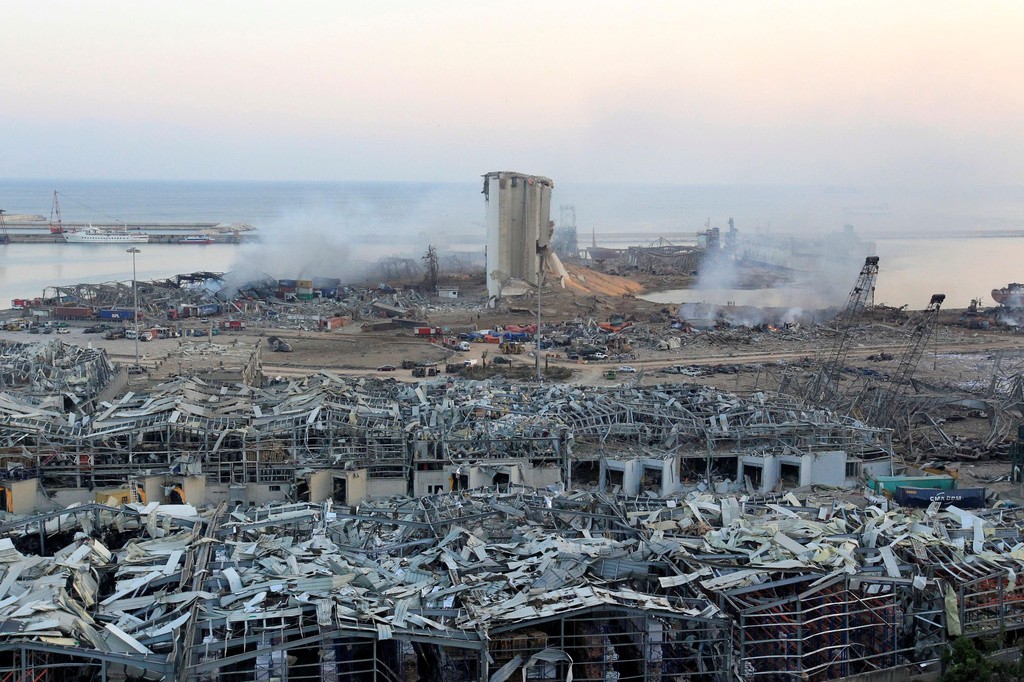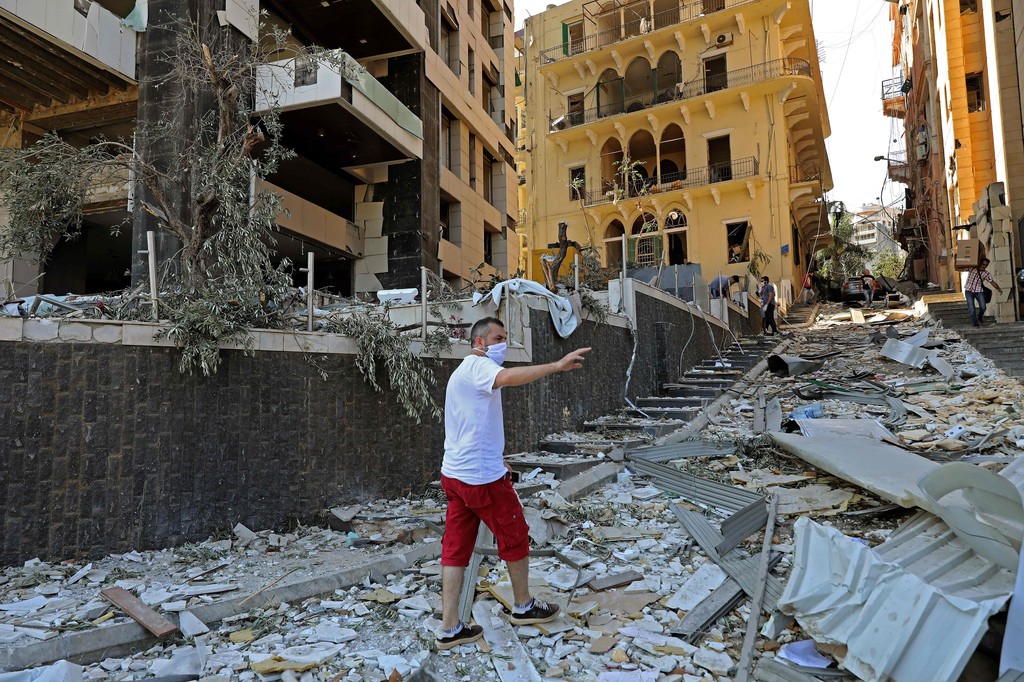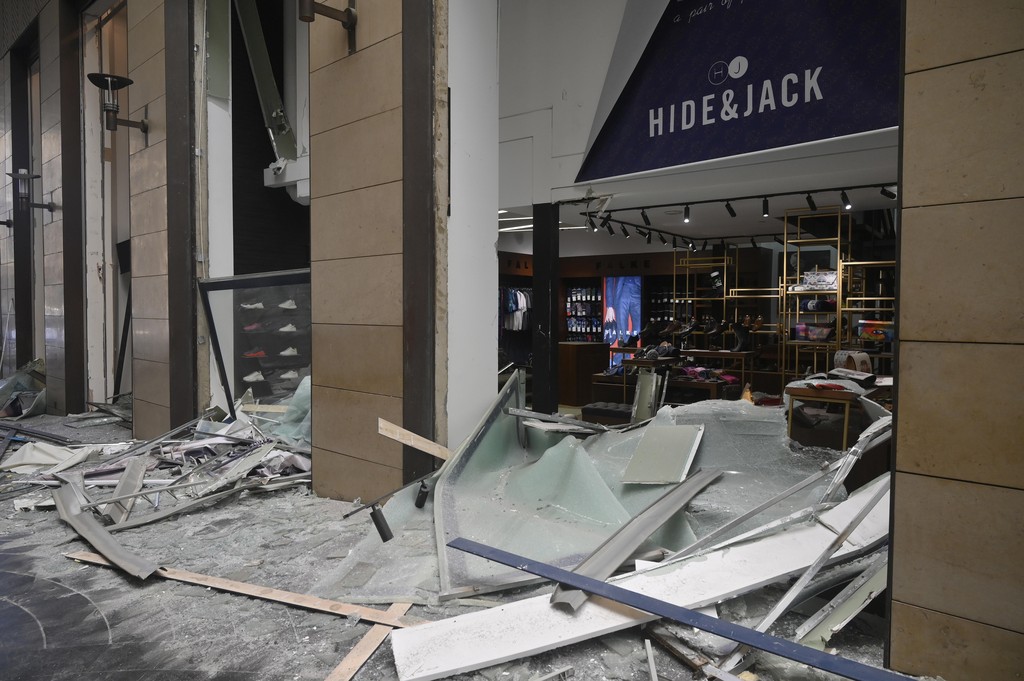Initial investigations into the Beirut port blast indicate years of inaction and negligence over the storage of highly explosive material caused the explosion that killed more than 100 people, an official source familiar with the findings said.
The prime minister and presidency have said that 2,750 tonnes of ammonium nitrate, used in fertilizers and bombs, had been stored for six years at the port without safety measures.
4 View gallery


A view shows damages at the site of Tuesday's blast in Beirut's port area, Lebanon August 5, 2020
(Photo: Reuters)
“It is negligence,” the official source told Reuters, adding that the issue on storing the material safely had come before several committees and judges and “nothing was done” to order the material be removed or disposed of,
The source said a fire had started at port warehouse 9 on Tuesday and spread to warehouse 12, where the ammonium nitrate was stored.
Another source close to a port employee said a team that inspected the material six months ago warned it could “blow up all of Beirut” if not removed.
Tuesday’s explosion was the most powerful ever suffered by Beirut, a city still scarred by civil war three decades ago and reeling from a deep financial crisis rooted in decades of corruption and economic mismanagement.
4 View gallery


A damaged building is pictured in the aftermath of yesterday's blast in Beirut's port
(Photo: AFP)
The head of Beirut port and the head of customs both said on Wednesday that several letters were sent to the judiciary asking for the dangerous material be removed, but no action was taken.
Port General Manager Hassan Koraytem told OTV the material had been put in a warehouse on a court order, adding that they knew then the material was dangerous but “not to this degree”.
“We requested that it be re-exported but that did not happen. We leave it to the experts and those concerned to determine why,” Badri Daher, director-general of Lebanese Customs, told broadcaster LBCI.
Two documents seen by Reuters showed Lebanese Customs had asked the judiciary in 2016 and 2017 to request that the “concerned maritime agency” re-export or approve the sale of the ammonium nitrate, which had been removed from cargo vessel Rhosus and deposited in warehouse 12, to ensure port safety.
4 View gallery


An injured man evacuated from the area of the explosion at Beirut's port
(Photo: AFP)
One document cited similar requests in 2014 and 2015.
Former Prime Minister Saad al-Hariri, whose father and also a former premier was killed in a large truck bomb attack in 2015 in the capital, called for a foreign role in investigating the blast that “once again killed the heart of Beirut”.
“We ask the government ... for a transparent judicial and security investigation without compromise, denial or circumventing the truth,” he said in a statement.
Shiparrested.com, an industry network dealing with legal cases, said in a 2015 report that the Rhosus, sailing under a Moldovan flag, docked in Beirut in September 2013 when it had technical problems while sailing from Georgia to Mozambique with 2,750 tonnes of ammonium nitrate.
4 View gallery


Shattered glass outside shops at Beirut Souks in the aftermath of a massive explosion in Beirut, Lebanon
(Photo: EPA)
It said that, upon inspection, the vessel was forbidden from sailing and shortly afterwards was abandoned by its owners, leading to various creditors coming forward with legal claims.
“Owing to the risks associated with retaining the ammonium nitrate on board the vessel, the port authorities discharged the cargo onto the port’s warehouses,” it added.

